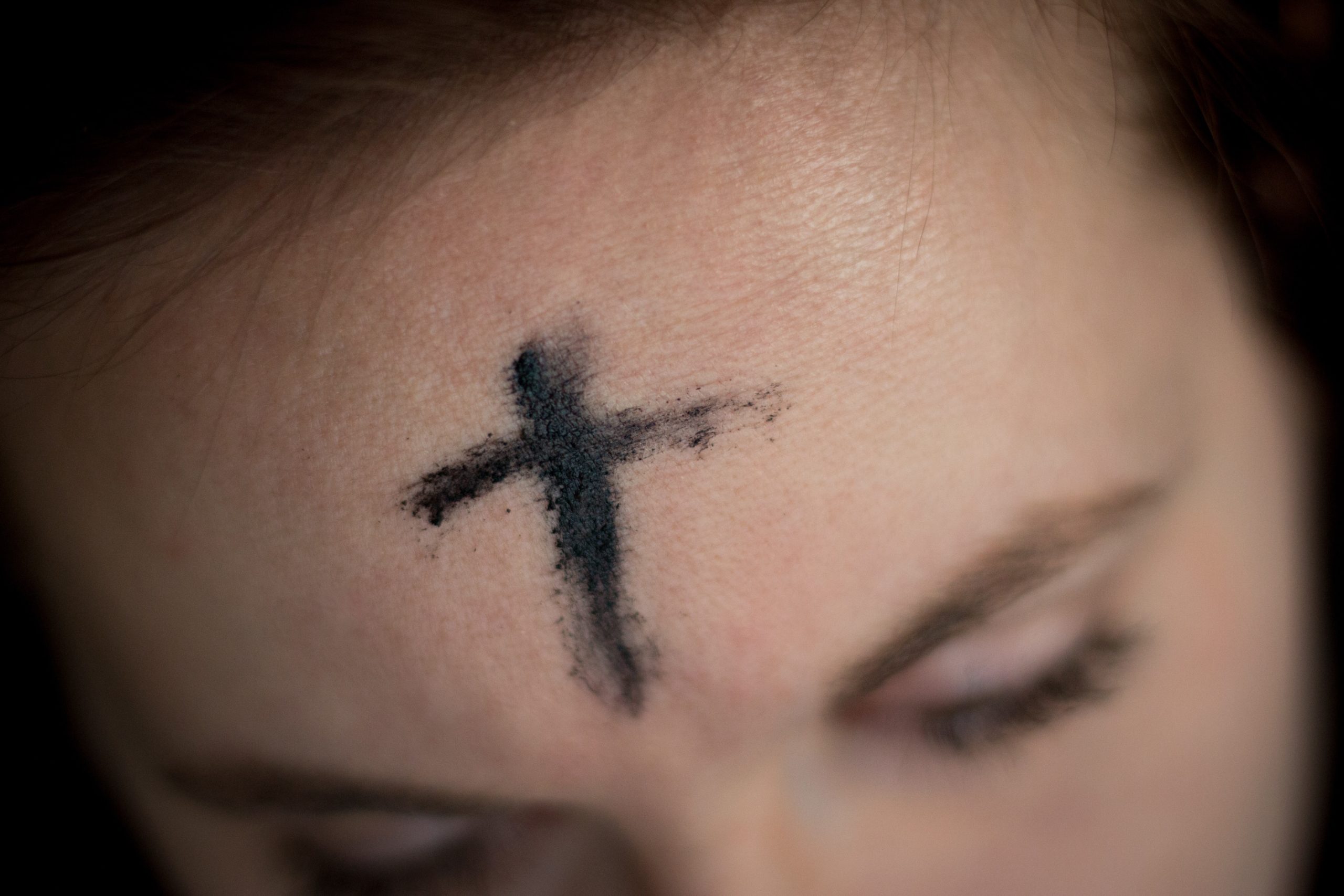
I received a great question from my sister today. She texted me and said, “I have a serious question. It just dawned on me after the gospel. When we go out wearing ashes, I understand they symbolize our sinfulness and mortality, but it almost feels hypocritical that then everyone can see we are fasting, praying, and almsgiving. But we’re told not to boast. I really want your thoughts.”
This is the gospel today, right? Do not be hypocrites. Don’t make it visible that you’re doing any of these things.
Thankfully, I had a good answer because I have been studying this. I never really studied this as to why we have this gospel reading today, and it does sound pretty hypocritical, doesn’t it? There’s a lot that goes into it, and much of it has to do with the whole revelation and our salvation history coming from what the Jews did.
We hear opposite things in the first reading. We hear, ‘Blow the trumpet, let everyone know there is a fast.’
Then, in the second reading, we hear ‘that today is the day we must enter this.’
Ash Wednesday – Why do we wear ashes?
First of all, to go back through some of the scriptural readings from the past:
Jobe said in the Book of Job:42: Therefore, I despise myself and repent in dust and ashes. Repent is a key phrase here. We repent when we wear dust and ashes.
Daniel, who is praying and interceding for the people, says: I, Daniel, turn my face to the Lord, seeking Him by prayer and supplications with fasting and sackcloth and ashes.
Maccabees: They fasted that day, put on sackcloth, and sprinkled ashes.
Probably the best one here is the Book of Esther: Esther was seized with her deathly anxiety and fled to the Lord. She took off her splendid apparel and put on garments of distress and mourning. Instead of costly perfume, she covered her head with ashes and dung. It’s a good thing this isn’t called dung Wednesday, or I don’t know if we would have that many people.
The Book of Joel: If you turn with me your whole heart. And we hear these verses, even now says the Lord return to me with all your heart, fasting, weeping, mourning and rend your hearts, not your garments.
Then we hear in the book of Matthew, this kind of transitions into today: Woe to you, Chorazin! Woe to you, Bethsaida! For if these mighty deeds were done in your midst had been done in Tyre and Sidon, they would have long repented in sackcloth and ashes.
So, today is the day we kick off our season of Lent. It’s a public coming together, and it’s a public going out. A day of repentance. The ashes that we wear today and will be signed with today are a sign of our repentance, that we desire so much to turn back to God, and that we’re sorry not only for our sins but the sins of our church. That’s why we have this Ash Wednesday.
That seemingly contradictory gospel is about the next 40 days. This Ash Wednesday is the public day of penance. We will celebrate these 40 days of prayer, fasting, and almsgiving. For the rest of the 40 days, you won’t be wearing ashes, but for the rest of the 40 days, we will be praying, fasting, and almsgiving.
As I have said before, it’s important that we make resolutions for all three. So, find a way not to do what you normally do with prayer but to increase our prayer a little during these 40 days.
Fasting, as I mentioned, is different than abstinence. Abstinence is abstaining from something like meat on Fridays, or you might abstain from sweets, coffee, or things like that, but fasting really means not eating. Try that. See if you can fast for some time during the day or even a day at a time.
Then finally, almsgiving. We’re supposed to always give to the poor and the church, but this is a time to increase our giving.
All of this should be done in silence. Jesus does say, “Go to your inner room.” So, go to your prayer place this time of Lent and increase that prayer. Find a way to fast and offer that fasting up. Our prayer is made even stronger when we fast. Then almsgiving is a sign of detachment and giving to Our Lord.
We begin with ashes. We show the sign of repentance today, but then we continue on in these 40 days with secret prayer, fasting, and almsgiving.


